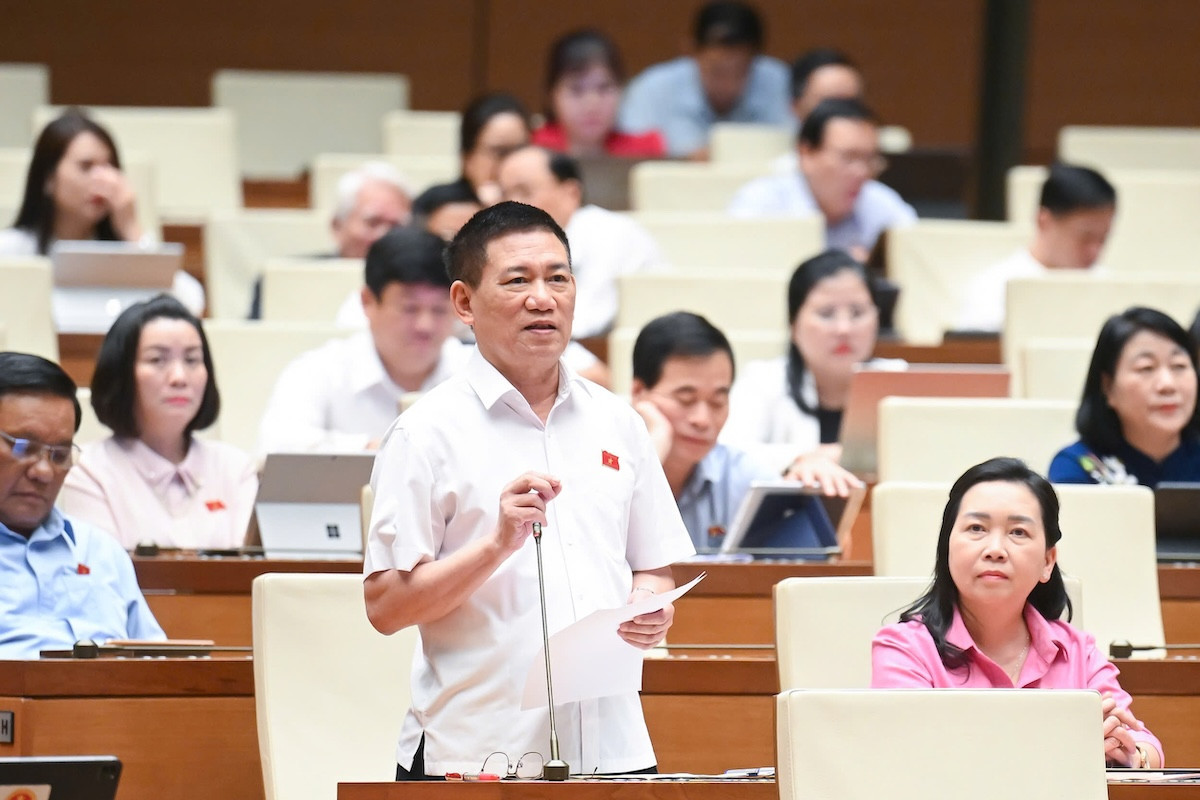During a National Assembly Q&A session this afternoon, Deputy Prime Minister Ho Duc Phoc emphasized the appropriateness of abolishing flat-rate tax regimes. He noted that the Ministry of Finance should soon develop a revenue threshold and tax calculation model that supports low-income earners and small traders while maintaining social security.
Preferential treatment for vulnerable small businesses

Deputy Prime Minister Ho Duc Phoc. Photo: National Assembly
Phoc highlighted that small vendors with less than $40,000 in annual revenue should be subject to a simplified tax scheme. Requiring them to issue invoices could be detrimental, as they often lack input invoices and thus cannot claim tax refunds.
“This policy would affect low-income and vulnerable individuals,” he said. According to the Deputy PM, taxation for small businesses typically includes business license tax, value-added tax (VAT), and personal income tax. These vendors still pay the business license tax normally.
He stressed that any tax policy must balance ease of administration for tax authorities, prevent revenue loss, and protect the interests of micro-businesses.
For larger operations with annual revenues exceeding 1 billion VND and established business premises, he proposed implementing invoice-based taxation to ensure transparency, prevent tax evasion, and protect the businesses’ legal interests.
Vietnam’s tax rates among the lowest globally
Responding to concerns that Vietnam’s tax rates may be high, Phoc clarified that the country’s VAT rate is among the lowest worldwide. “Our VAT has been reduced from 10% to 8% over the past five years. Internationally, it ranges from 17% to 27%,” he explained.
Corporate income tax rates also remain competitive. “Globally, they range from 20% to 30%, and in Asia from 20% to 35%. In Vietnam, the highest is 20%, with some sectors paying just 10% or even 5%,” he added.
The Vinh